Verbs come in three tenses: past, present, and future.
The past is used to describe things that have already happened (e.g., earlier in the day, yesterday, last week, three years ago).
The future tense describes things that have yet to happen (e.g., later, tomorrow, next week, next year, three years from now).
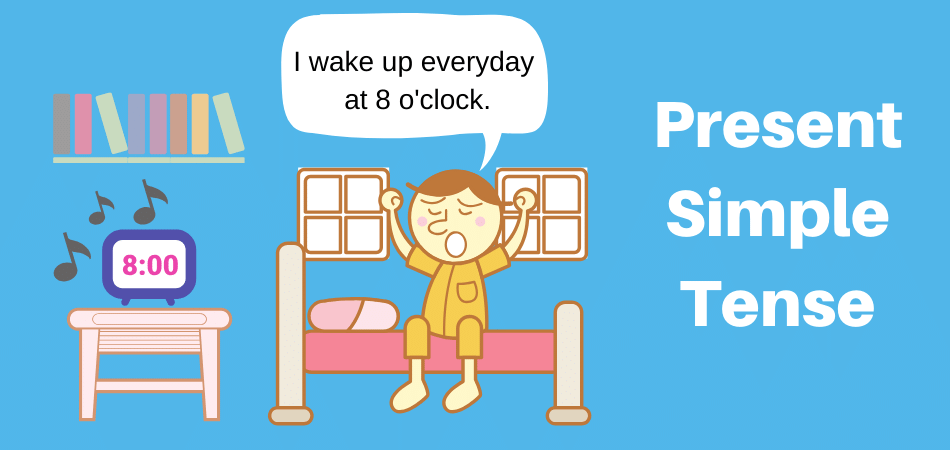
This lesson will discuss the present tense which is used to talk about things in general. We can use it to describe actions that happen frequently or situations that are generally true.
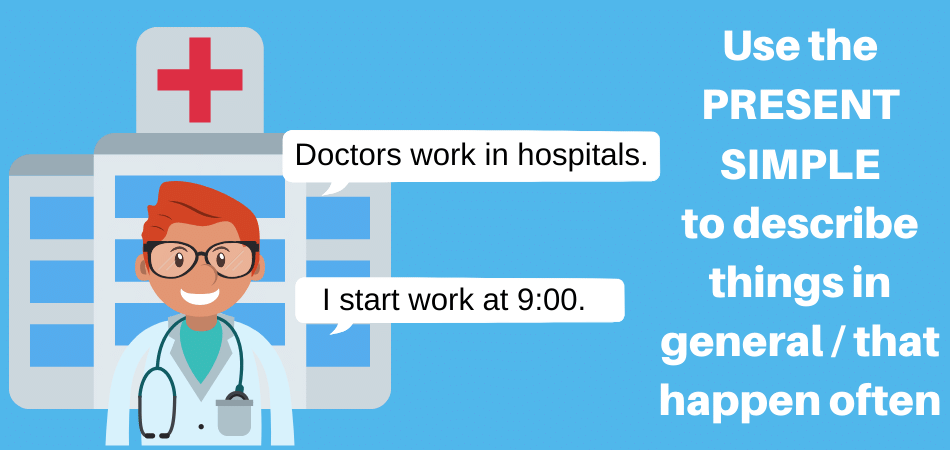
Doctors work in hospitals. [true in general]
The doctor starts work at 9:00. [happens all the time]
This tense is constructed by using the plain infinitive, the infinitive without “to”, when the subject is “I” (also known as the 1st person singular), “you” (the 2nd person singular / plural), “we” (the 1st person plural) or “they” (the 3rd person plural).

I work as a shop assistant.
You work as a cashier.
We work at weekends.
They work together.
In the 3rd person singular, “he / she / it,” just add “s” or “es” to the end of the plain infinitive verb.
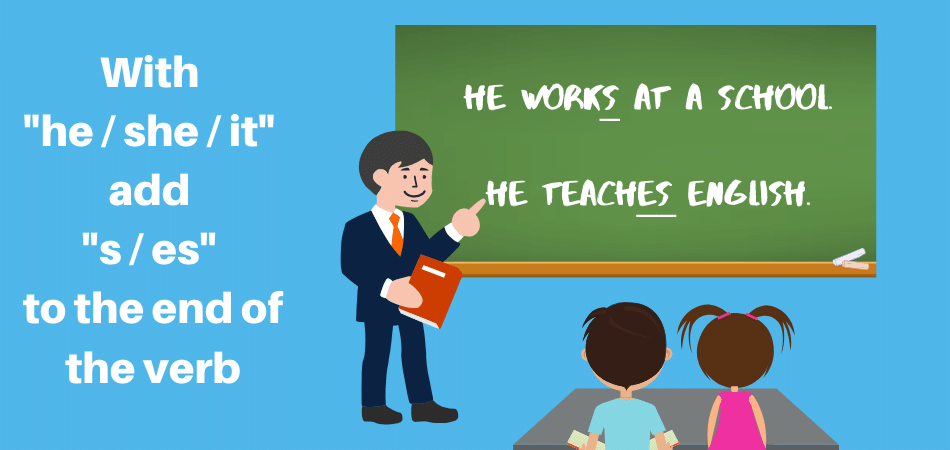
He works at a school. [to work +s = works]
He teaches English. [to teach + es = teaches]
For present simple negative sentences or questions, English uses the verb “do” together with the main verb. Verbs that “help” the main verb like this are called auxiliary verbs.
When “he / she / it” is the subject, “do” becomes “does”.
In negative sentences, “do / does” is followed by “not” and then the main verb.
“Do / does not” can also be shortened to “don’t / doesn’t.”
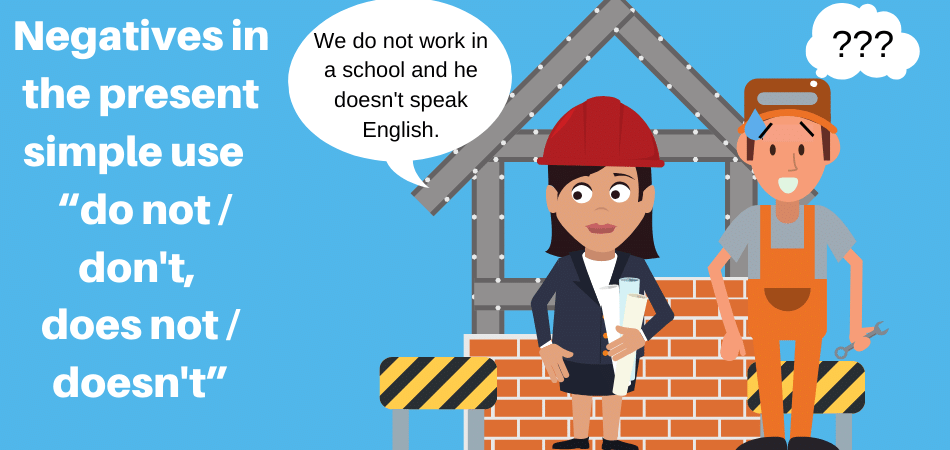
We do not work at a school. [subject, auxiliary + not, main verb] OR
We don’t work at a school.
He does not speak English. [subject, auxiliary + not, main verb] OR
He doesn’t speak English.
To form questions, the word order changes. “Do / does” is used at the start, followed by the subject and then the main verb.
We also use “ do /does” again in the reply.
* Exceptions: Questions that have To Be or Modal Verbs (can, might, must, etc.)
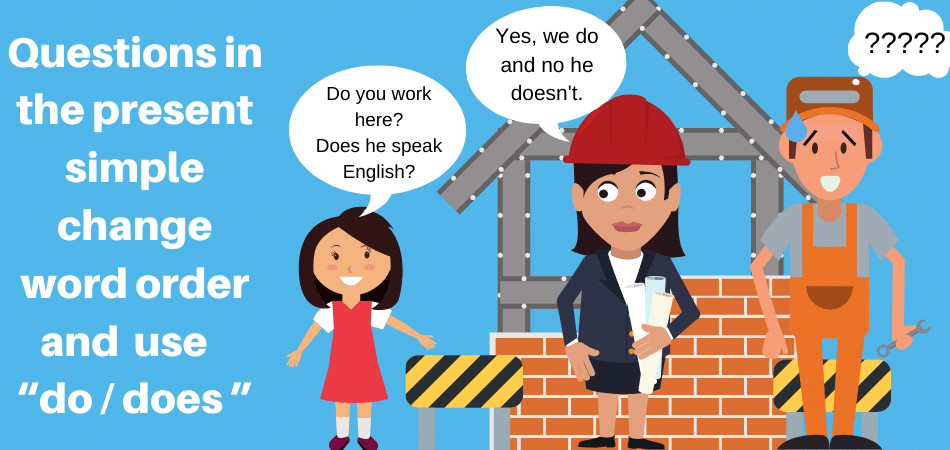
Do you work here? [auxiliary, subject, main verb]
- Yes, we do.
Does he speak English? [auxiliary, subject, main verb]
- No, he doesn’t.
This video shows the irregular verb, to have, that changes for “he / she / it. ” It is an easy, simple and clear lesson.
Now, practice.
Reference: https://englishclassviaskype.com/blog/how-to-learn-english/present-simple-explained-in-pictures/
